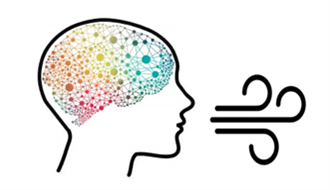 BREATHE-SMART Research Study – Siblings with Depression
BREATHE-SMART Research Study – Siblings with Depression
STUDY BASICS
Are you the parent of a child aged 6-17 who has major depression and another child aged 10-15 who has not been diagnosed with major depression? Your child without major depression may be able to participate in a research study to help find out if four weeks of regular mindfulness practice can have an impact on brain function and mood. Compensation provided.
STUDY PURPOSE
Major depressive disorder is an illness that causes persistent depressed moods and lack of interest in activities. This disorder tends to run in families, which means that children with a parent or sibling who has major depression are much more likely to develop the mood disorders than those who do not.
The purpose of this study is to learn more about the relationship between brain function and the risk for mood disorders, and to find out if four weeks of regular mindfulness practice can change brain function and mood symptoms. Mindfulness teaches people to be more aware and accepting of their thoughts and feelings in the present moment and may help people respond better to stress and emotions. Researchers hope their findings will lead to better ways to identify and prevent the onset of mood disorders in at-risk youth.
COULD THIS STUDY BE RIGHT FOR YOUR CHILD?
- Child aged 10-15:
- Has NOT diagnosed of any of the following: bipolar disorder, schizophrenia, or autism spectrum disorder
- Is able and willing to undergo MRI scanning (no braces or other metal in their body, not claustrophobic, and has never had head trauma with loss of consciousness)
- Has daily access to a smart phone or tablet
- Has not already participated in the Brain Regulation of Emotions Study or the BEAM Study
- Child aged 10-15 also has a sibling who:
- Has been diagnosed with major depressive disorder
- Must also participate in this study by telephone or virtually
WHAT PARTICIPANTS CAN EXPECT
Participation involves psychiatric assessments, questionnaires, and MRI brain scans. During a 1–2 hour initial baseline visit, your child will be asked to answer questions and the researchers will confirm that a sibling has the diagnosis of major depressive disorder. Your child will also be asked to undergo two MRI brain scans as well as to use the “Smiling Mind” mindfulness app for at least five minutes per day for four weeks. During a two-month follow-up appointment, you and your child will complete additional questionnaires.
IRB: STUDY19100162G
- Brain Regulation of Emotion and ThoughtsMEET THE RESEARCHER

Danella Hafeman
Danella M. Hafeman, MD, PhD, is an Assistant Professor of Psychiatry at the University of Pittsburgh in the Department of Psychiatry. Dr. Hafeman’s research focuses on youth with and at-risk for bipolar disorder. She is interested in understanding clinical and neural mechanisms of risk and resilience, with the goal of eventually preventing mood disorders in these youth. Clinically, she works as a child psychiatrist in the Child and Adolescent Bipolar Services clinic, where she evaluates and treats youth with and at-risk for bipolar disorder.
MEET THE COORDINATOR

Jamie Feldman
Jamie A. Feldman, BA, is the Research Coordinator for Dr. Hafeman’s studies at the Child and Adolescent Bipolar Services clinic. She received her BA in Psychology from Dickinson College. She has a background in clinical psychology as well as experience working with children and families across multiple settings.
 https://pittplusme.org/study/1844
https://pittplusme.org/study/1844
